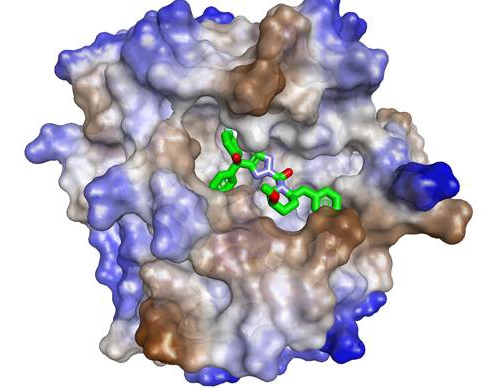
New substances inhibit inflammation in the brain
Chemical biologists from Leiden, led by Dr Mario van der Stelt, have discovered substances that can reduce inflammation processes in the brain. This is a first step in the development of potential medicines for the treatment of brain diseases like Alzheimer's and Parkinson's. Published in Proceedings of the National Academy of Sciences of the USA (PNAS).
The body's own marijuana

Our brains are able to produce fatty substances that work in a similar way to THC, the psychoactive components in marijuana. These substances produced in our own bodies are called endocannabinoids. Both THC and the endocannabinoids activate the cannabinoid CB1 receptors in the brain, which can make you 'high'. If too many endocannabinoids are produced it can lead to overconsumption, obesity and infections in the brain.
New synthetic molecules
Hui Deng, PhD candidate in Mario van der Stelt's research group, has developed new, synthetic molecules which are able to reduce the production of endocannabinoids by inhibiting the activity of ‘diacylglycerol lipase’ in the brain. This proved not just to reduce the activation of the cannabinoid CB1 receptor (giving an ‘anti-high’ effect of sorts), but also to almost completely halt the production of arachidonic acid, an important component in infectious reactions. This resulted in a reduction in the production of pro-inflammatory cytokines - proteins that speed up infections - in the brain.
Possible applications
The results will form the basis for follow-up research. Medical chemists can develop the inhibitors further using models of different diseases such as obesity, metabolic syndrome and neurodegeneracy. This opens up opportunities for a new approach to the treatment of neurodegenerative diseases such as Parkinson's and Alzheimer's disease, in which infections seem to play an important part.
Multidisciplinary and international research
The research and the publication are a multidisciplinary collaboration between different Leiden University researchers and the American Scripps Research Institute in La Jolla, California. It continues on from the study published earlier in which a new method of measuring was developed to speed up the search for new medicines and the discovery of a new sensor that measures the activity of ‘diacylglycerol lipases’.
